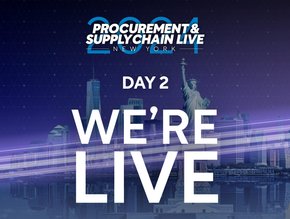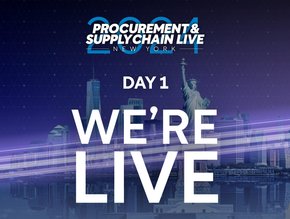Is Air Freight Bouncing Back from the Era of Disruption?

It’s fair to say the air cargo market has endured a difficult couple of years, with dwindling demand hitting revenues hard for much of 2022 and 2023.
Carriers were left with little option but to temper their activity, reduce capacity and tighten their belts in a bid to fend off fears for the very survival of their organisations.
However, in recent months, some reasons to be cheerful have reared their heads.
Following almost 18 months of consecutive decline, air cargo traffic achieved year-over-year growth in August and continued to do so throughout the remainder of 2023, according to data from the International Air Transport Association (IATA).
And positive progress has continued into 2024, with the IATA’s latest figures indicating overall air cargo demand increased by 18.4% in January and was up 19.8% for international operations.
Of course, weak figures from the first half of 2023 should continue to be borne in mind, but optimism is on the rise in some quarters, especially given the booming e-commerce sector.
As Willie Walsh, Director General at the IATA, points out, the counterweight to this is uncertainty over how China’s economic slowdown will unfold.
Air cargo demand dependent on customers
Offering his own perspective, Preben Hansen, Global Head of Growth & Solution for Air and LCL at Maersk, believes the air freight market will likely see big differences betwee customers, verticals and geographies.
He references the huge impact that fast-fashion e-commerce is having on the sector, driven by the rapid rise of retailers like Shein and Temu, while air cargo activity between China and the UK has seen a big spike compared to Trans-Pacific traffic.
“We are seeing that tightening inventories from individual clients are pushing more air mode [of transport],” says Preben during a recent conversation on Maersk’s YouTube channel. “It’s not so much about industry, but individual customers, within individual verticals, within individual trades – that’s where you see a spike.”
Maersk’s outlook on the market is, inevitably, slightly different to other industry players given its air freight division, Maersk Air Cargo, has not yet been fully operational for two years.
The business has been working hard to improve its position in the sector, offering customers a unique combination of air freight integrated with other transport modes.
“Definitely there is movement,” Preben adds, “not in general cargo but more in e-commerce. We see improvement for air demand with customers, but it’s selective based on their inventory needs and the vertical and trades they’re involved in.”
Reliability assumes heightened importance
What hasn’t changed from a customer perspective, according to Preben, is the demand for cost competitiveness, which remains as crucial as ever.
But following the pandemic and amid geopolitical uncertainty, reliability has assumed a heightened importance.
“A lot of customers got caught off guard by the severity of change frequencies,” Preben continues. “Of course, the world was a different place and that left a big vulnerability in supply chains – for instance, if you’re only moving [goods] on commercial aircraft.
“This is why Maersk entered aerospace with Maersk Air Cargo because it's important to have a certain control of your supply chain. That doesn't mean you can control everything, but if you have your own flights, that creates at least an increased reliability in the supply chain.”
Preben also points to frequency as a consideration which is increasingly being factored into Maersk’s thinking, as customers seek to return to or exceed pre-Covid levels when it comes to the number of commercial freight services.
Another challenge for Preben and the wider Maersk team is speed. Customers are demanding answers to their problems “faster and faster”, he reveals – to the extent that solutions once designed over the course of two months are these days expected within one week.
He adds: “Because the world is ever changing, we’re seeing the customer ask for much more agility, and therefore speed.”
Building resiliency
Regionalised sourcing has become a hot topic for discussion within supply chain circles in recent months, with organisations seeking to source products closer to home.
Many firms have begun using nearshoring as a strategy – in other words, locating their suppliers and distributors nearer to their operational centre or the final destination of their supply chains.
While this might mean incurring higher upfront costs, a reduction in travel time can bring savings and mitigate environmental risks, an issue which became apparent during the pandemic as entire nations were cut off from each other.
It’s a strategy with the potential to come to the rescue during periods of instability, while decreasing cycle times for product delivery.
Ultimately, however, the goal is to boost resiliency and navigate potential disruption.
Shedding light on the conversations taking place between Maersk and big-name clients, Marcus Ng, Head of AP Air at Maersk, says: “One of the major topics often brought up in discussion is how to ensure supply chains are resistant to unforeseen disruption.
“We are seeing a noticeable level of diversification of manufacturing sites to other Asian countries [away from China], where customers are seeking to build more resiliency into their supply chains. Where some are choosing to retain manufacturing sites within China, it is purely focused on domestic demand.
“However, China is still the manufacturing hub of the world. A customer might shift their assembly from China to Mexico or India, but where do all the raw materials come from? So, in one way it might build resilience, but it will still take time to diversify the source of all the raw materials.”
******
Check out the latest edition of Supply Chain Magazine and sign up to our global conference series – Procurement and SupplyChain LIVE 2024.
******
Supply Chain Digital is a BizClik brand.







